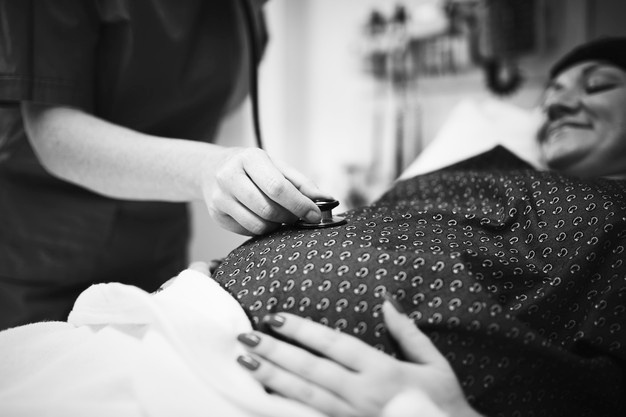Understanding Pregnancy Trimesters

A full-term normal pregnancy usually lasts 40 weeks and it can range from 37 to 42 weeks. The complete cycle or months of pregnancy are divided into three trimesters. Each of these trimesters usually last between 12 and 14 weeks or about 3 months.
All the trimesters come with their specific hormonal and physiological changes. Awareness of these trimesters would only help in easing your anxiety. It also helps in reducing the specific risk factors for each of the trimesters.
All of the trimesters are explained briefly below:
First Trimester
The counting of the pregnancy date starts from the first day of your last normal menstruation cycle and conception takes place in week 2.
The first to the 12th week of pregnancy is called the first trimester of pregnancy. Physical changes such as baby bump or increase in your weight may not be visible in the first trimester but your body goes through enormous changes as it is accommodating your growing baby.
Initially, the hormone levels change significantly. The growth of placenta and the fetus is supported by uterus. Your body adds blood supply to the uterus to carry oxygen and nutrients to the growing baby. This results in an increase in the heart rate.
A few more early pregnancy symptoms are:
- Fatigue
- Morning sickness
- Headaches
- Constipation
The development of your baby mainly happens during the first trimester.
By the end of the third month, all the organs of the baby get developed. Hence, this becomes a very important time. You need to take care of your diet, you can include adequate amount of folic acid as it helps in preventing neural tube defects.
You should try avoiding smoking and drinking alcohol, such habits or drug-use usually results in pregnancy complications and birth abnormalities.
The risk of miscarriage can be significant during the first trimester. To lower the risk of miscarriage, you can take prenatal vitamins and avoid harmful substances.
Even though some gynaecologists recommend cutting out the caffeine completely but its moderate consumption is okay. During the first trimester, deli meat and shellfish should be avoided. These changes help in decreasing the chances of miscarriage.
First trimester is the perfect time to think and learn more about pregnancy, childbirth, breastfeeding, parenting, etc.
Second Trimester
Many women call this period of time most comfortable. It lasts from 13th to 27th week.
During this period, the early pregnancy symptoms disappear gradually. An energy level increase would be felt during the day time and you’ll be able to enjoy a more restful night’s sleep.
This would be the time when you’ll start looking pregnant as your uterus will grow rapidly in size. This time is appropriate for the shopping of maternity wear, avoid restrictive clothing, etc. You can also consider this time to the time when you announce your pregnancy with a pump.
The most common complaints during second trimester include leg cramps and heartburn.
Other things include increase in appetite and a lot of increased weight gain. Consult your gynaecologist to get the knowledge about weight that would be appropriate. Include walk, choose healthy and nutrient dense food and keep your visits to your gynaecologist frequent.
Varicose veins, backaches and nasal congestion may become apparent.
Usually by 20 weeks, most of the pregnant ladies can feel their baby move for the first time. The baby also becomes able to hear and recognize your voice during the second trimester.
A few screening tests are also performed during the second trimester. Discuss your medical history, your family history, or genetic issues that could put you or your baby at risk.
An anatomy ultrasound is also performed between 18th and 22nd week. The scan is done to measure baby’s body parts and assess them to make sure they are functioning properly.
This is also the time when your doctor tests for gestational diabetes. It can be detected between 26th and 28th week of pregnancy. The family history of diabetes or if you have risk factors for developing diabetes, you may get tested earlier.
Third Trimester
It lasts from 28th week until the birth of your baby. The gynaecologist will regularly:
- Test your urine for protein
- Check your blood pressure
- Listen to the fetal heart rate
- Measure your fundal height ( the approximate length of your uterus)
- Check your hands and legs for any swelling
Your gynaecologist would also determine your baby’s position and check your cervix in order to monitor how your body is preparing for childbirth.
You are also screened for bacteria called group B streptococcus, somewhere between 36th and 37th week. This bacteria is also called GBS, it can pose a serious threat to newborns if it’s passed to them during delivery.
Travel restrictions are put on during this trimester. It is always better if you stay in close proximity of your doctor. Cruise ships typically won’t allow people that are over 28 weeks pregnant to board. Airlines may allow you to fly but only with the permission of your healthcare provider.
This is the time when you can become aware about labour and delivery.
